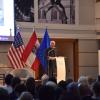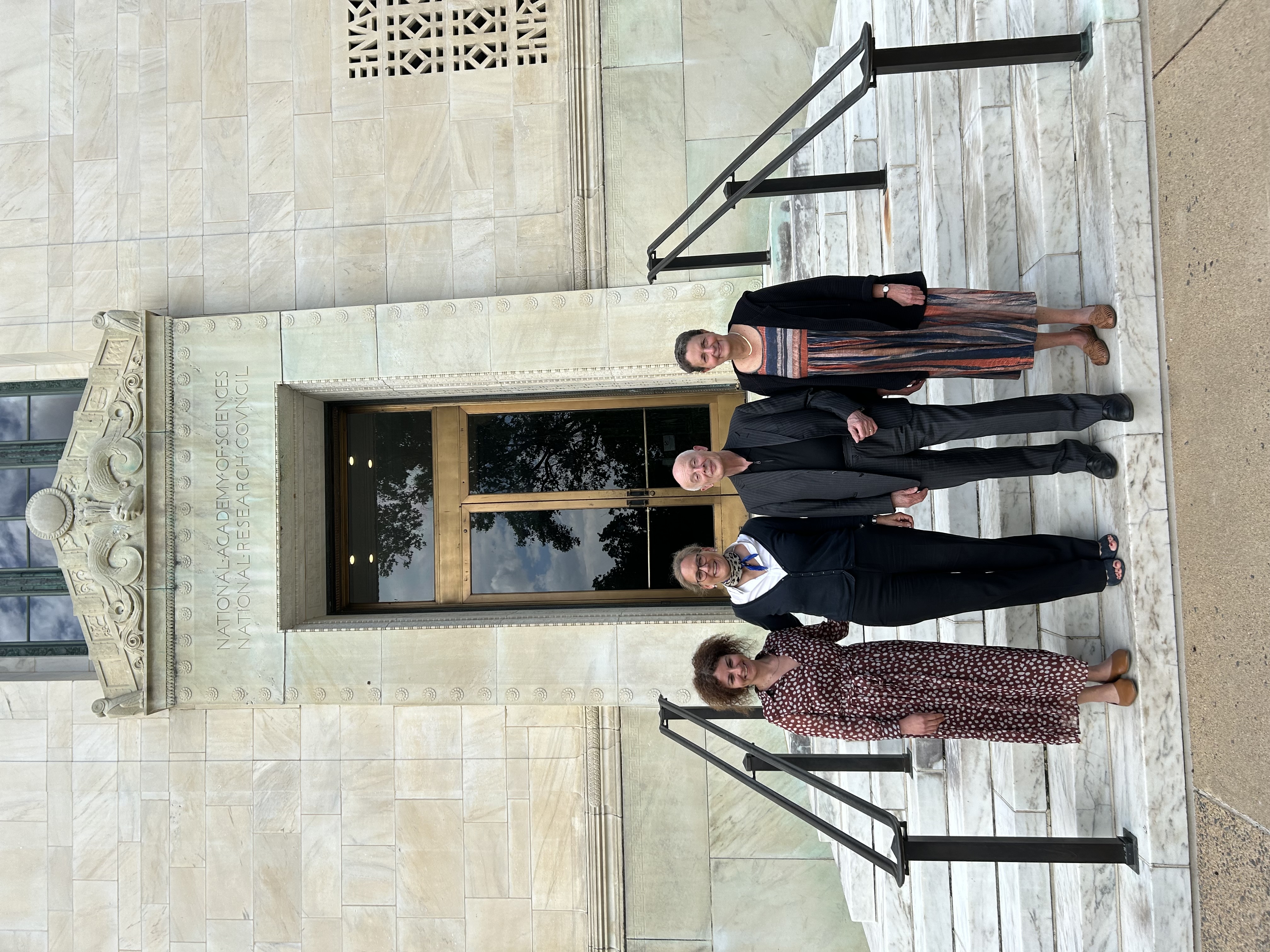
In May, IIASA Director General John Schellnhuber and Head of Communications and External Relations Barbara Kreissler traveled to Washington DC for a series of meetings with members of the US IIASA Committee and other key stakeholders. The trip aimed to strengthen relationships and explore new opportunities for collaboration.
(l-r): In front of the Academy of Sciences with Ourania Kosti (US NMO Secretary), Barbara Kreissler (IIASA Head of CER), John Schellnhuber (IIASA Director General), and Debra Knopman (IIASA Council Member for US) .
The United States, a founding member of IIASA since 1972, hosted IIASA Director General John Schellnhuber and Head of Communications and External Relations Barbara Kreissler for a multi-day trip to Washington DC to reflect IIASA’s ongoing commitment to address global challenges through scientific research and policy dialogue.
The visit started with a meeting between IIASA and the US Committee for IIASA at the National Academy of Sciences, where discussions focused on avenues for increasing strategic engagement and broadening mutual opportunities for collaboration. In the evening, John Schellnhuber delivered a lecture titled, Surviving the Anthropocene and securing human wellbeing in the 21st Century, at the invitation of the Austrian Embassy. The lecture, which was attended by more than 170 participants, highlighted pressing challenges and potential solutions for the future.
Strengthening and expanding IIASA’s collaborative network in the US was a central theme throughout the visit. As such, meetings with the Office of Science and Technology Policy at the White House, the National Science Foundation, the World Bank, as well as with the International Monetary Fund, focused on establishing new, and enhancing existing partnerships with a view on integrating IIASA models into broader strategic initiatives. Additionally, discussions with senior scientists at NASA, including Chief Scientist Kate Calvin, an alumna of the IIASA Young Scientists Summer Program (YSSP), explored positioning IIASA as a hub for NASA and identifying areas for increased cooperation.
The many highlights of the trip included a meeting of the IIASA delegation with the President of the National Academy of Science, Marcia McNutt and H.E. Ambassador of Austria to the US, DDr. Petra Schneebauer. Against the backdrop of IIASA’s commitment to science diplomacy, this meeting provided an opportunity to discuss ways to raise awareness about IIASA’s initiatives in the US around the establishment of a future center for science diplomacy and negotiations by leveraging diplomatic support to enhance IIASA’s visibility and impact.
IIASA is eager to build on the new insights and commitments established during this successful visit. The discussions in Washington have set a strong foundation for future collaborations, reaffirming IIASA’s dedication to addressing global challenges and jointly exploring further opportunities for increasing engagement between IIASA and the US.
News

22 January 2025
Winners of the 2024 Young Scientists Summer Program Awards Announced

16 January 2025
IIASA sets example for thriving scientific collaboration in challenging times

13 June 2024


